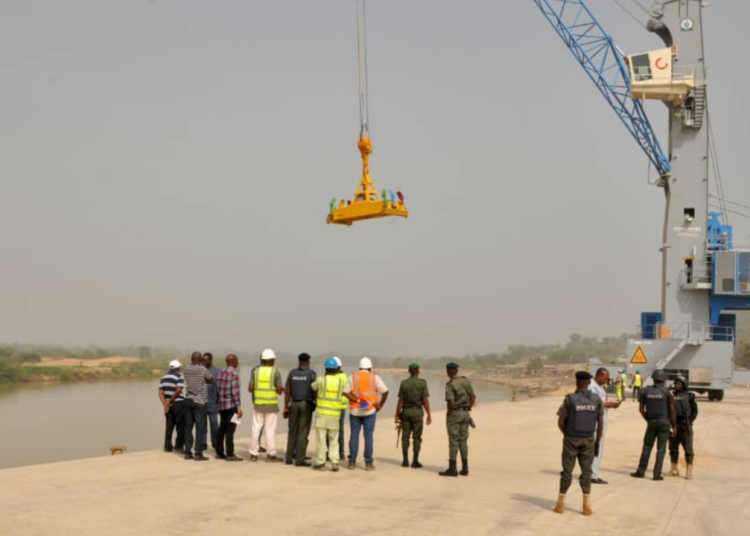Four years after President Muhammadu Buhari commissioned Baro Inland Port in Niger State, the project is yet to take off. Without mincing words, the project has been practically abandoned by relevant authorities. When the Port was commissioned on January 19, 2019, the government and people of Niger State, and indeed, the North, were happy and had high hopes that this laudable project would help bring the region out of the economic woods it has found itself today.
The port was constructed by a Chinese firm, CGCC Project Limited at the cost of N5.8 billion. The project is equipped with a quarry length of 150 metres, cargo stacking yard of 7,000 square metres, a transit shed of 3, 600 square metres and a capacity of 5,000 TEU at a time. The port also has a water hydrant system, water treatment plant, tree forklift of various tonnages and powered by a 100KVA generating set.
Unfortunately, as the days roll into weeks, months and years, every hope that Baro Port will ever become operational is gradually fading, making it a mirage. In fact, it is gradually getting listed among the many abandoned laudable projects scattered across the country. As it appears today, the words of a former minister of transportation that “the rehabilitation of Baro Port is a waste of public funds,” have become an ugly reality.
As a newspaper we consider it inconceivable that a federal government which inherited four river ports on assumption of office in 2015, and have borrowed heavily for critical infrastructure, has failed to complete the Baro Port in four years.
In 2015, when the Buhari administration came on board, one of the ports, the Onitsha River Port, was already completed, while the other three, including Baro Port, were at different stages of completion. The government then committed funds to the projects. How can the same government turn around today to say, in words and actions, that these ports were never meant to be viable?
It is our belief that the real problem is policy inconsistency and lack of political will to drive new infrastructural development or sustain existing ones. These are the issues that have continued to confront the needed growth and diversification of the Nigerian economy. It is not the easy excuse of scarce resources, but the prioritisation of available resources and channeling them to economically viable projects like Baro port. The project is fast losing its prospects and becoming like the many abandoned projects littered across the country.
The federal government must realise that the economic benefits of Baro port are now under threat by the delayed take-off. There is every need to revive the Baro port and make it functional, especially at this critical time when the nation is facing a drop in revenue.
We must collectively not lose focus of the fact that Baro port project was designed to enhance intermodal transportation connectivity in Nigeria. It is also meant to reduce the pressure of big trucks on the country’s roads. It has the capacity to create huge economic opportunities for Nigerians and help in decongesting similar ports. The project, according to experts, will generate nothing less than 4,500 direct and indirect jobs.
Although government has attributed the delayed take-off of Baro Port to the non-completion of the major access roads to the multi-million-naira inland port. Nonetheless, it isn’t an impossible task for the government if it is truly committed to the project. More than 13 years since the contract for the 53 kilometres Agaie-Katcha-Baro road which is the major access road to the port was awarded, non-release of funds has remained a major concern. The government must begin to walk the talk and show commitment to the project.
Completing the port and making it to function optimally is long overdue. There is no gainsaying that the port will impact positively on the Nigeria economy. Specifically, it will have impact on the local economy in the state. Jobs will be created and not just for the host community, but for the teaming youths across the country.
Making Baro Port in Niger State and other ports on the River Niger, such as the Lokoja and Oguta ports viable for shipment of cargoes within the country, particularly to the northern part, will save Nigeria a whopping N100 billion in freight costs for shippers. No serious government will toy with such project.
In our opinion, government must, therefore, do everything possible to make Baro Port operational. The project will also help in reducing the insecurity currently ravaging Niger State and other parts of the North.





